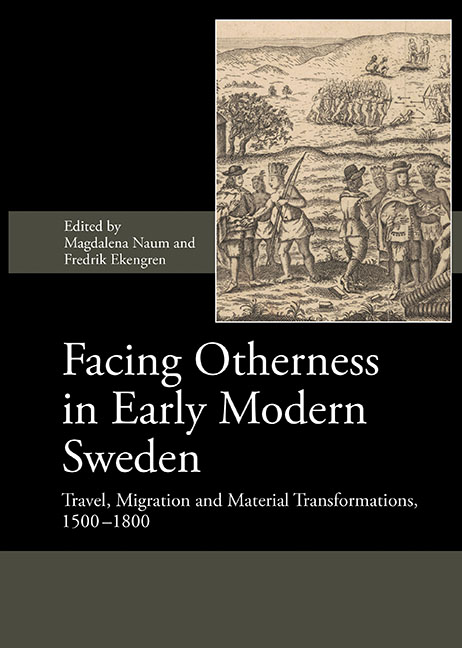18 - Encountering Some Others and Not Others
from IV - Conclusions
Published online by Cambridge University Press: 23 July 2019
Summary
In the prequel to this volume, Scandinavian Colonialism and the Rise of Modernity, the authors introduced provincial colonials like myself to exciting new scholarship reconsidering the place and consequences of Sweden's and Denmark's colonial projects in northern Scandinavia, Greenland and Iceland, North America, the Caribbean and Africa. This volume revisits and expands our view of these colonial encounters in Finland, among the Sami in northern Scandinavia, and in North America. We also learn about early modern Sweden's other exploratory and mercantile ventures outside the kingdom – in South America, China and North Africa. Perhaps most important for Anglophone archaeologists and historians of the modern world, this volume illuminates the complicated diversity and arena of contested encounters that was 17th-century Sweden.
Editors Magdalena Naum and Fredrik Ekengren argue that during this period Sweden did not remain on the margins of Europe. Rather the nation and its peoples became collaborators in the creation of modern Europe. Sweden encompassed Finland, Livonia, the German provinces and Danish regions acquired in war settlements, as well as the Sami homeland in the north, Sápmi. In the opening chapter, Per Cornell and Christina Rosén contend that we must begin by distinguishing between “other” (that defined as different in particular settings) and “Other” (alterity, the unknown) in 17th-century Sweden. Home to various European immigrants, ethnic minorities, peasants and noblemen, merchants and administrators, soldiers, sailors, farmers, and craftspeople, urban and rural communities, distinctive regions, Lutherans and Orthodox and others, 17th-century Sweden is difficult to describe. The roles and powers of the state, nobility, and Church varied considerably across the century.
Cornell and Rosén examine the more than 12,000 cadastral maps drafted between 1630 and 1655, inscribing details of farms and settlements that form one measure and document of change, of othering and of the Other in Sweden. The maps themselves “othered” the landscape, severing the connection between it and the people living on it, making it unfamiliar and unknown. They also represented new, other landscape practices (such as enclosure) and Other settlement forms that scholars have too easily conflated into hamlet, village, and town. Starting in the Swedish homeland, Cornell and Rosén rightly maintain, and challenging what we thought we knew and the categories our predecessors developed to classify and analyses places, people and objects, is critically important to “encountering” early modern Sweden and Swedish colonialism anew.
- Type
- Chapter
- Information
- Facing Otherness in Early Modern SwedenTravel, Migration and Material Transformations 1500–1800, pp. 351 - 360Publisher: Boydell & BrewerPrint publication year: 2018



